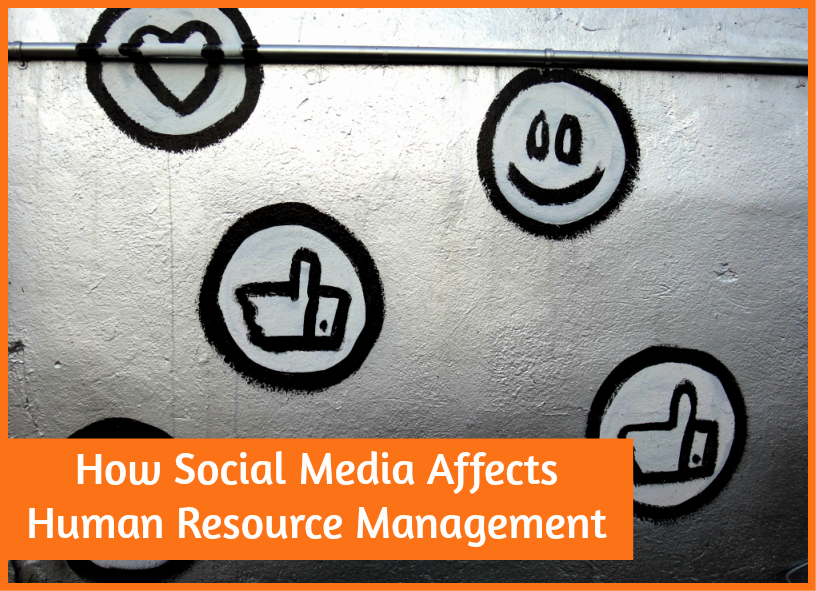
How Social Media Affects Human Resource Management
From Facebook to Instagram, social media has become a large part of most people’s lives. Whether they are posting their latest lunch pictures or changing their relationship status, people often spend a significant amount of time creating new updates. But what is the role of human resources (HR) on social media, and how does it relate to employees?
Recruiting New Employees
Social media gives HR professionals another way to look for and screen candidates. Recruiting candidates through social media has become more common, and 70 percent of employers use it to screen candidates. In addition to a resume, cover letter and interview, social media can provide important insight about potential employees.
When candidates post public information or photos online, human resources can use this data to get a better sense of their fit in the company.
Most HR professionals look at social media to verify a candidate’s qualifications for the job, professional background and other personal details that may be relevant.
Often, social media can reveal unflattering pictures or updates made by the potential employee. You may find inappropriate posts about drug use, alcohol and criminal behavior. You may also come across discriminatory or racist comments.
Establishing Employee Guidelines

An HR manager can end up with many duties at work, including the need to establish clear employee guidelines about social media use. According to Maryville University, human resources professionals may find themselves dealing with administrative services as a normal part of their job.
Social media can lead to informal interactions among employees, so clear rules about what is expected online can help.
Most companies prefer that employees avoid public criticism of their coworkers or business, but there are other nuances to consider.
What will you do if an employee tweets an offensive comment about another person outside of the company?
- First, you have to decide if employees should be allowed to use social media while at work. Completely restricting access to social media during work hours may not be an option if employees need it for their jobs, such as marketing or sales.
- Second, you have to select which platforms employees should be able to use.
- Third, you have to establish rules of conduct and engagement for social media.
The Society of Human Resource Management has an employee handbook builder that you can purchase to customize and add social media guidelines. You can also use a free template to make the handbook. You can create your own resources based on experience and employee feedback. Whichever version you choose, every employee must have easy access to it and be able to follow it.
Using Official Company Accounts
Most companies have official social media profiles today, so it is important to address how they are used. Frequently, figuring out how and when these profiles can be used falls on the shoulders of human resources management. Who gets to speak for your company on social media?
Many businesses hire professional social media managers to handle their Facebook, Twitter, Instagram and other profiles. Although hiring a pro is important, HR still has to create rules.
Spam and trolls fill social media, so figuring out how to handle them before anything is posted online is crucial.
As the HR manager, you have to create clear regulations for how to handle a variety of difficult situations on social media that employees managing the accounts may encounter.
Periodically, you have to monitor the official accounts to make sure they are staying on brand and following the guidelines. They should not be posting stolen, copied or inappropriate content. They should also avoid inflammatory comments, arguments with trolls, responses to spam or offensive pictures. In addition, nothing should be posted that infringes on someone’s privacy.
Interacting With Employees
It is becoming more common for companies to interact with employees online. Social media creates another area for HR to post updates and talk to employees. This means you have to decide what is appropriate to share with the public online and what should stay private. Often, it can be difficult to navigate how much information the company should reveal.
It is important to note that posts from HR on social media can also be used to attract clients and potential employees. Company culture and accomplishments that receive praise can boost the business profile. Anything you post online has the potential to be seen by the world.
Human resource management cannot ignore social media anymore. In many cases, employees have to use it throughout the day for their jobs, so you must have clear rules and expectations. You also have to figure out how to manage official company accounts and create rules for them.
Social media can be a good resource for finding new recruits and clients on a frequent basis. If you use it correctly, social media can also boost your company’s brand.
© New To HR


